Writings on the Wall
Basketball legend Kareem Abdul-Jabbar's new book fights the dangerous complacency of American discourse on race and social justice, and is clearly inspired by all that the Trump phenomenon has unleashed.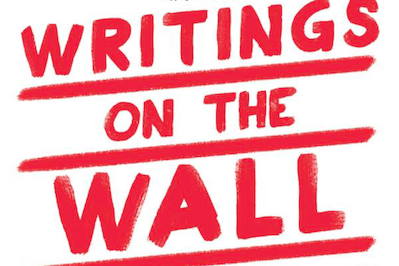
(Time)
|
To see long excerpts from “Writings on the Wall” at Google Books, click here. |
“Writings on the Wall: Searching for a New Equality Beyond Black and White” A book by Kareem Abdul-Jabbar and Raymond Obstfeld
This has been an extraordinary year for assessing the cultural impact of African-American sports figures.
San Francisco 49ers quarterback Colin Kaepernick’s decision to protest what he sees as persistent racial inequality in America, by remaining seated during the playing of the national anthem, has stirred passionate debate about free speech and inspired other athletes to speak out in support. At this year’s Olympics in Rio, gymnast Gabrielle Douglas sparked a similarly heated conversation when she chose not to rest her hand on her heart during the playing of the national anthem (this following an internet blowup over her hair).
The life, legacy, crimes and meaning of O.J. Simpson transfixed and obsessed TV viewers (including me) in two excellent productions, one a dramatization of his trial for murder, the other a documentary that brilliantly contextualized him within the framework of America’s racial history. The death of Muhammad Ali provided an opportunity to celebrate a fighter who turned boxing into a kind of pugilistic ballet and whose “say it loud” fight for personal, political and religious freedom resulted in a landmark Supreme Court ruling.
Now comes basketball legend Kareem Abdul-Jabbar’s “Writings on the Wall: Searching for a New Equality Beyond Black and White,” a book that examines the current state and psyche of our country.
Abdul-Jabbar is the anti-O.J., a thoughtful “race man.” And he writes the way I imagine Ali would have if he had not felt that his rhyming, his humor, his militant assertions of his own worth, and the bravura performance he made of his life were not in and of themselves a perpetual, unfolding, powerful narrative.
In 1967, Abdul-Jabbar worked with sports greats Jim Brown, Bill Russell and others to protect the free speech and religious freedom of Ali. Since retiring from basketball as the NBA’s all-time leading scorer and a six-time MVP, Abdul-Jabbar has created an impressive career as a political commentator as well as an author of children’s books. He has written a number of provocative essays for The Washington Post (though all of the pieces collected in this book are original to it).
In whatever he writes, Abdul-Jabbar seeks to challenge conventional wisdom, lazy thinking and stereotypes. He is in hand-to-hand combat with toxic ideas and is fighting the dangerous complacency of American public and private discourse on matters of race and social justice.
Abdul-Jabbar spoke at the Democratic National Convention and, while not stated openly, the commentaries in his book (written with Raymond Obstfeld) are clearly inspired by the rise of Donald Trump and all that phenomenon signifies and has unleashed. As a citizen, a writer and an activist, Abdul-Jabbar is concerned about the future and fate of his country. He assesses where we are nearly 20 years into a new century, as the country’s first black president prepares to leave office, and concludes that for too many, the American Dream is hypothetical and that our democracy is still, truth be told, in the nation-building stage.
The book’s foundational question could not be more timely: “So how is it that American politics has fallen so far from grace in the people’s eyes?”
If that is to change, he explains, “If we really want American politics to improve, then American voters will have to improve as well, by being more educated about the facts, more critical in our thinking and more demanding of our elected officials.” More than a civics lesson, Abdul-Jabbar offers a civics challenge and reminds us that we don’t just live in America, but we as citizens are responsible for it and to it.
In the chapter on religion, he takes to task Americans’ often polarized, simplistic attitudes about Islam and recent calls to bar, ban and register Muslims. “Islam is a mystery religion to most Americans,” he notes, while reminding us that in fact the religion’s “teachings don’t involve acts of terrorism unless—as with every other religion—leaders manipulate the teachings to make whatever they want.”Still, for all its overtly political intent, the book is at its best when Abdul-Jabbar mines his own experience. One of the most poignant and compelling sections details his reasons for converting to Islam at the age of 24. Deeply influenced by the civil rights and black power movements and Malcolm X, Abdul-Jabbar took a big risk: “For the person who converts, it is a matter of fierce conviction and defiance. Our belief is based on a combination of faith and logic because we need a powerful reason to abandon the faith of our families and community to embrace the beliefs foreign to both. Conversion is a risky business because it can result in losing family, friends and community support. I know, because I lost all three. For a while.”
In a discussion of how the idea of race was invented and is used to marginalize and oppress, Abdul-Jabbar concludes: “The word ‘race’ is ghettoizing language that perpetuates seeing people of color as a different species. The word encourages fear and distrust. Language is the fuel that feeds the great racist generator.” Race eventually “should become the new n—– and people will refer to it in hushed tones as the R-word.” Until then, he writes, “for the sake of sharing a common though inaccurate language in order to foster a solution, most of us, myself included, will continue to talk about race as if it actually existed—and racism because it does actually exist.”
These commentaries, however, do more than analyze. Each chapter concludes with specific actions that individuals and groups can take to help keep politicians accountable, our public discourse tolerant and the news media fair. The book is designed not only to be read and discussed but also to be used as a blueprint for action. It allows the reader to engage the mind of a deeply principled man, a progressive committed to equality for all, a man who possesses the faith that his country might actually one day live up to its mythology.
If there is a flaw here, it is that often there is an overreliance on polls and statistics, allusions to widely known and overly familiar cultural figures, and quotes from others. I yearned for more passages that revealed not just the author’s politics but the author himself.
Abdul-Jabbar gives us a glimpse into himself, not surprisingly, in the chapter on sports. Sports is an expression of our national ego and id, our delusions, and our fantasies, so this is the chapter that allows Abdul-Jabbar to write about issues from money to free speech, from violence to parenting. By playing basketball, he writes, “I learned how to become a team player without losing my individual identity. I learned how to use my championship rings to champion social causes. And though I haven’t played basketball in decades I’m still learning how much my life as an athlete taught me how to live as a man, as an African-American and as an American.”
In this moment, when so much public discourse assaults us in the form of sound bites, tweets, posts and hashtags, it is deeply satisfying to witness a writer taking such a bold stand on the divisive issues of our national politics and culture, who wants to make a point and encourage conversation.
I don’t think Abdul-Jabbar would mind if I concluded that he, just like the activists of the Black Lives Matter movement, wants America to “stay woke.”
Marita Golden is the author of 14 works of fiction and nonfiction, including “Don’t Play in the Sun: One Woman’s Journey Through the Color Complex.”
©2016, Washington Post Book World Service/Washington Post Writers Group
Independent journalism is under threat and overshadowed by heavily funded mainstream media.
You can help level the playing field. Become a member.
Your tax-deductible contribution keeps us digging beneath the headlines to give you thought-provoking, investigative reporting and analysis that unearths what's really happening- without compromise.
Give today to support our courageous, independent journalists.

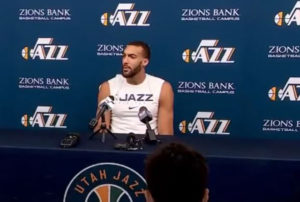

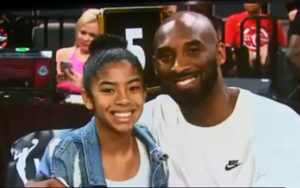
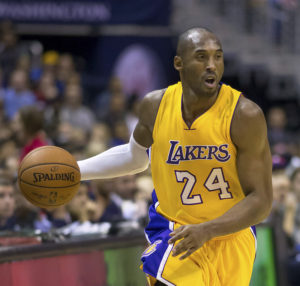
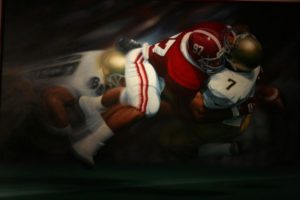
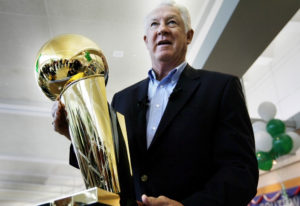
You need to be a supporter to comment.
There are currently no responses to this article.
Be the first to respond.